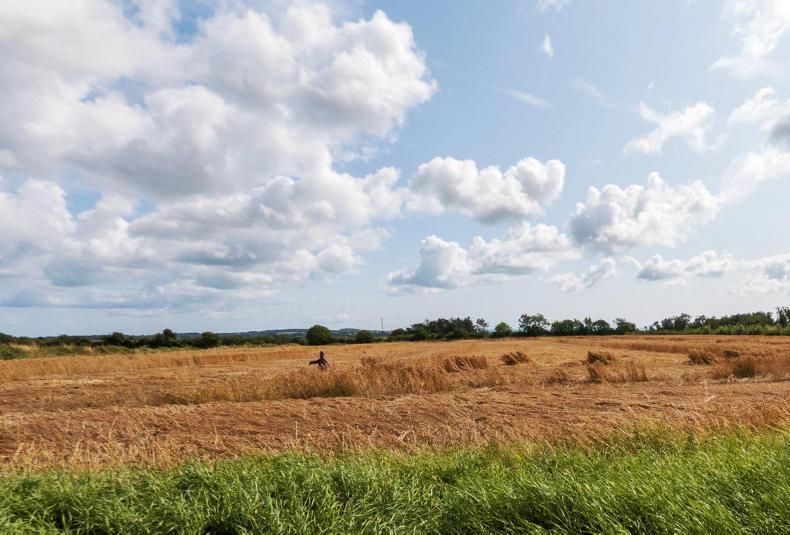Difficult weather: Broken weather and heavy showers continue to make harvesting very difficult. Where bits of cutting are being done, growers made the decision to cut at higher moistures in an effort to secure standing crops. Straw is once again a problem.
The heavy rain has resulted in some very significant lodging, with large parts of some crops flattened. Lodging is very common in spring barley but it is also serious in winter wheat, with parts of Meath and Tipperary possibly worst affected. Most crops have little bits of lodging, especially at headlands.
Crops are now going off colour due to the frequent rain. But the presence of early sprouting is a far greater worry as this will drive a reduction in both quality and yield. While this is worst in lodged areas, there is now visible sprouting in standing crops also.
Partly harvested fields are a symptom of the difficult conditions. This is a very critical time and we must hope for better weather to get ripe crops harvested.
Good potential: While getting crops cut is a challenge, yields to date appear good. Many early spring barley yields are reported around 3.5t/ac with low protein. Getting a big proportion of low proteins so early in the harvest has caused difficulties at malting intakes with growers being refused delivery of grain under 9.3% where an individual has already delivered 30% of contracted tonnage. This move was introduced by Boortmalt in an effort to ensure that it gets 70% of its barley above 9.3% protein for brewing.
That said, this broken weather could spell other difficulties, with germination now a real fear. There could still be a need for good barley if it can be stored and segregated.
Some early winter wheat yields have been good also with a number reported above 5t/ac green or 4.6t/ac dry. Early straw yields from wheat are good too with five to six 8x4x4 bales/ac. However, the prospect of continued broken weather will make chopping more appealing due to the difficulties in getting straw baled and cleared.
Winter rape: Rape planting might begin next week if harvesting continues to be disrupted. Consider using high-N organic manures such as pig or poultry ahead of rape. These need to be incorporated immediately following application with poultry litter subsequently ploughed down. But the planting of hybrid varieties in these situations might be delayed for a week or so to prevent excessive autumn growth.
The recommended varieties are Anastasia, DK Extrovert, PX113, SY Harnas, Alizze, Aquila and Dariot. Some may also need to consider Clearfield varieties like Phoenix CL or Impression CL where brassica weeds are a big problem.
Plant conventional varieties at 65-80 seeds/m2 and hybrids at 35-40 seeds/m2.
Hybrid rape seed contracts: Seedtech has hybrid rape seed contracts available for growers who may be interested. It can be a lucrative crop option.






 This is a subscriber-only article
This is a subscriber-only article









SHARING OPTIONS: